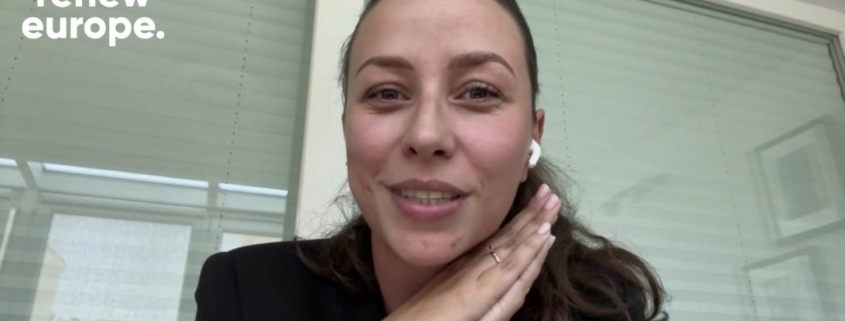On Monday, August 26, 2025, at the Henry Jackson Society panel, European MP Irena Joveva took part in a discussion about the political crisis in Serbia following the tragic collapse of the canopy at the railway station in Novi Sad. In recent weeks, as Joveva pointed out, it has become more and more obvious that the government is losing ground under its feet. “They counted on the fact that the income of the summer would silence discontent and erase the memory of guilt, that people would forget about corruption and demands for responsibility, but the region underestimated the courage and determination of the people who would defend the rule of law in the country for months.”
Joveva emphasized that it has been a long time since the European Parliament called on the European Commission to take action against President Vučić’s regime: “I did not start to be loud only with protests or for the sake of the students as such – but for the sake of values that they are fighting for and that they embody, because these are the same values that the European Union represents.”
As she went on to assess, the system established by Vučić during his long reign has become dangerously similar to the one known in neighboring Hungary under Viktor Orban. In this regard, she expressed her disappointment that despite repeated calls to the Commission to make European funds conditional on respect for the rule of law, so far “nothing concrete has been done”.
Joveva drew attention to the geopolitical background that allows Vučić to maintain his power: “Vučić enjoys support not only in Russia and China, but also within the European Union, especially in France and Germany, whose leaders clearly prioritize lucrative economic and political interests over the rule of law.” But precisely because the fundamental pillars of democracy are failing in Serbia, namely freedom of the media, an independent judiciary and the police, which would have to serve the people, the European Union would have to play a much more active role, because in the case of Serbia, it is a matter of a candidate state”.
At the same time, she emphasized that the EU must not encroach on the right of the Serbian people to choose their own government. “Nor is it up to us, the European Union, to encroach on the right of the Serbian people to choose their own government. We must therefore support the values and legally binding rules that must be implemented by every future member of the EU. Serbia is still oriented towards the EU – and that, frankly speaking, is its best alternative”.
Regarding Vučić’s willingness to engage in dialogue with students, Joveva emphasized that real dialogue in democratic societies takes place at pre-election meetings, where the arguments of both sides can be confronted openly and where the final decision on the future direction of the state will belong to the people. “In any democratic state, protests that lasted for weeks and a crisis that runs so deep would inevitably lead to early elections. But let’s not forget – those elections must be fair and free, otherwise nothing will change,’‘ she concluded.
In addition to European MP Joveva, professor Filip Ejdus and representative of the student movement Lazar Popović also participated in the panel.




Leave a Reply
Want to join the discussion?Feel free to contribute!